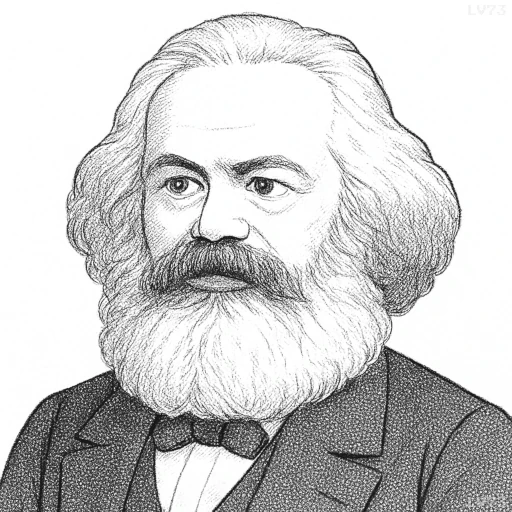“Medicine heals doubts as well as diseases.”

- May 5, 1818 – March 14, 1883
- Born in the Kingdom of Prussia (Germany)
- Philosopher, economist, political thinker
table of contents
Quote
“Medicine heals doubts as well as diseases.”
Explanation
In this quote, Marx presents an insightful critique of the role of medicine in society, suggesting that it serves not only to cure physical ailments but also to alleviate psychological uncertainties or fears. By “healing doubts,” Marx implies that medicine, particularly under capitalism, can sometimes function as a tool to maintain social order by reassuring individuals and society as a whole. In a capitalist system, where inequality and exploitation are pervasive, medicine can act as a means of calming anxieties, especially when societal problems are too complex or entrenched to be easily addressed. People who are disillusioned or suffering from the psychological impacts of their conditions might turn to medical solutions that soothe their concerns, even if the root causes of their suffering—such as poverty, injustice, or social inequality—remain unaddressed.
Historically, Marx saw medicine and healthcare as institutions embedded within broader capitalist structures that often serve the interests of the ruling class. While medicine provides necessary relief and care, it can also be a way of diverting attention from the deeper systemic issues that cause societal distress. The medical profession, within capitalist societies, can become institutionalized in ways that treat symptoms or individual maladies rather than addressing the social determinants of health, like poverty, unemployment, or injustice. This perspective suggests that while medicine can treat the individual, it often does little to treat the broader social ills that give rise to widespread suffering.
In contemporary society, Marx’s view remains relevant in critiques of healthcare systems, especially in countries where healthcare is commodified or where access is determined by economic class. In such systems, people may receive treatment for diseases, but mental health and psychosocial issues—which are often linked to broader social conditions—may not be fully addressed. Additionally, the medical field itself can sometimes be complicit in maintaining the status quo, offering treatments that ease the pain of living under capitalist conditions without challenging the underlying inequalities or structural injustices. Marx’s assertion reminds us that healthcare, like all aspects of life under capitalism, should not only be about managing symptoms but also about addressing the root causes of suffering in society.
Would you like to share your impressions or related stories about this quote in the comments section?
